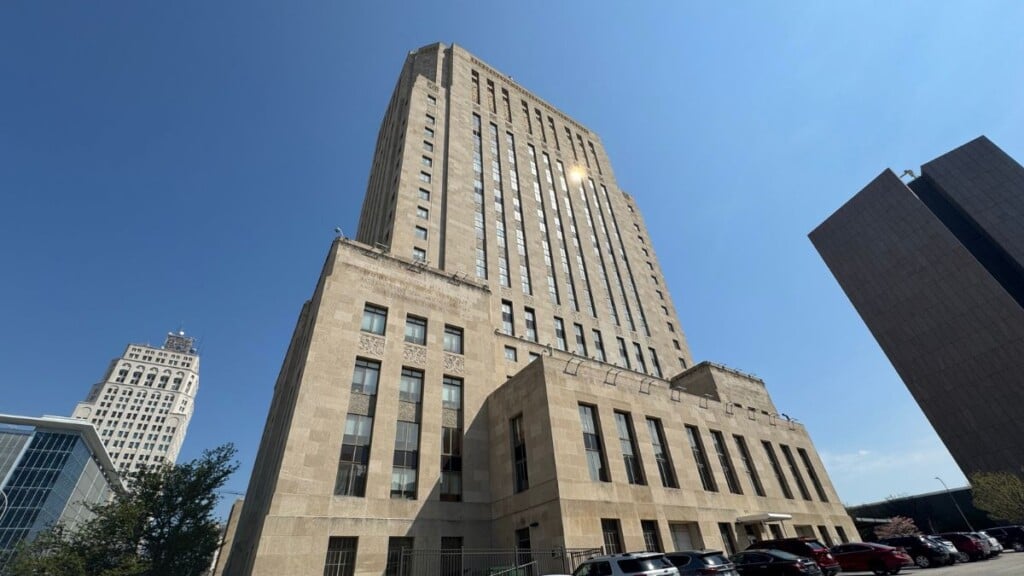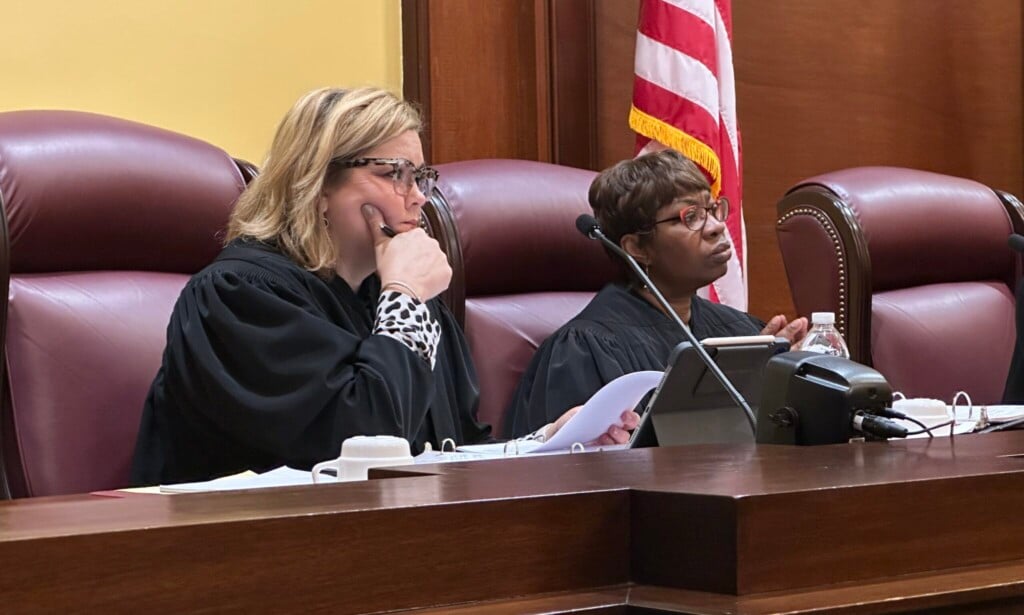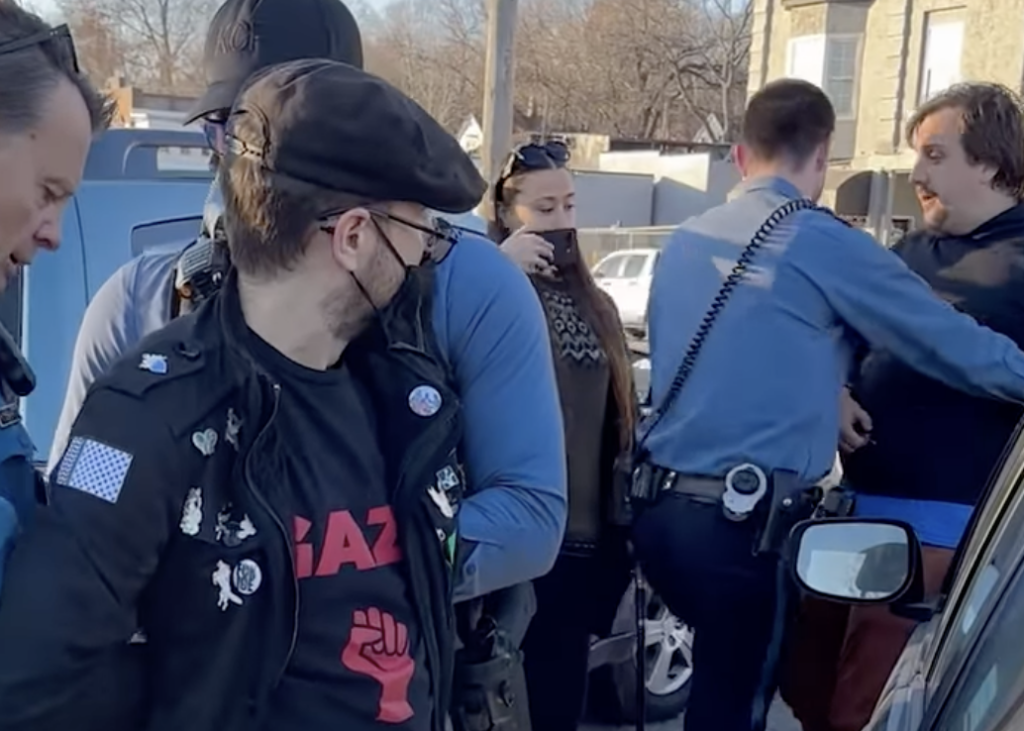“Immigration 101” workshops empower community intervention against illegal government raids
On Tuesday night, around 100 people attended an “Immigration 101” teach-in at the North-East Public Library.
The event was hosted by a coalition of organizations, including Indivisible KC—a local chapter of the larger progressive, grassroots political organization, Indivisible—Boots on the Ground Midwest, The Cross Border Network, Advocates for Immigrant Rights and Reconciliation (AIRR), and the Asylum Clinic Kansas City.
As the Trump administration barrels into its second term, immigration arrests and deportations have reached a new high. Trump’s push for mass deportation has caused Immigration and Customs Enforcement (ICE) to find unique ways to increase arrests, often resulting in the detainment of immigrants who are neither illegal nor criminals.
Invasive workplace raids by ICE have sparked outcry in communities across the country, leaving many individuals with questions about ways in which they can help their community.
Judy Ancel, president of The Cross Border Network, was one of the presenters at the workshop. Aware of the climate of uncertainty and confusion surrounding immigration, and having received many questions from people in the community, she decided to host another installment in the Solidarity School of Resistance educational series, organized by Bill and Kim Clause.
“We knew that people were very interested and horrified by the behavior of the ICE raids around the country and in Kansas City,” Ancel, who has been a local activist for over 40 years, says. “We also knew that people don’t understand the complexities of how our laws work in terms of who’s legal, who’s not legal, who’s a criminal, who’s not a criminal.”
The session kicked off with an introduction from the presenters. In attendance, in addition to Ancel, were Karla Juarez, executive director of AIRR, and Clare Murphy Shaw, an immigration attorney and the executive director of the Asylum Clinic.
Following introductions, the audience learned from Ancel about the demographic breakdown of Kansas City’s immigrant population and was prompted to consider how deportations will affect jobs in fields such as educational services and healthcare, positions often held by members of the immigration population, and how that will impact their lives. Led by Shaw, the presentation then defined the various classifications of legal status for immigrants in the U.S., which included explanations of the differences between refugees, asylees, and those with temporary protected status, among others.
The teach-in also tackled a critical question: why are so many people undocumented? The hosts addressed this by sharing a video from the National Immigration Law Center outlining a brief history of the complexities of immigration laws and policies in the U.S. from the 1990s to the present. Ancel then presented a “wheel” of reasons why people immigrate to the U.S. That list included wars, NAFTA/CAFTA, corruption, U.S. imperialism, and climate change, among others.
Juarez then took the mic and briefed attendees on ICE activity in the Kansas City metro area. She noted that AIRR operates a rapid response hotline, also referred to as the ICE-watch hotline, in the area. They’ve been a part of training people, organizations, and schools, in Missouri and Kansas, to have their own rapid response teams aimed at reporting ICE sightings.
Juarez told the audience that it’s a model that’s been used around the country to “watch out for our neighbors and try to minimize the fear that exists in the community.”
This year alone, AIRR has trained more than 3000 people in rapid response. These individuals and groups are taught not only to watch, but to understand their First Amendment rights, specifically, that they have the right to record law enforcement in a public space—filming can potentially help someone with a deportation case if they were unconstitutionally arrested. The training also informs people not to interfere with active arrests and to support the families involved. These reports help AIRR track patterns on ICE behavior and activity in the area.
“We have seen a lot of targeted arrests of people with previous deportation orders, mainly,” Juarez says. “They are following them until they arrive at their places of work or at QuikTrip before they go to work, but they’re carpooling with five other people that are probably undocumented, and don’t have a deportation order, but also end up getting arrested.”
Shaw, after Juarez, went on to discuss the boundaries the Trump administration is pushing to expand the limits of federal power, covering specific issues that federal courts will need to determine constitutionality. She addressed questions ranging from when ICE needs a warrant to whether the agency can force local police and sheriffs to cooperate.
After Ancel discussed the potential economic consequences if the U.S. were to simply deport all immigrants, or even just the undocumented, audience members were left with action items on how they could help their community.
Community members were encouraged by Juarez to put pressure on their local representatives, attend training hosted by the presenting organizations, and make donations to support families going through the process.
Other resources included reviewing a fact sheet provided by the American Immigration Council, access to “blue cards” for allies—similar to “know-your-rights” cards—that contain pertinent information to know during sighted ICE activity, and the AIRR rapid response hotline number.
Deann Gregory, who attended the teach-in, spoke to The Pitch about what brought her out to the event.
“I wanted to learn more about these organizations that are working to stop the illegal brutalization of our brothers and sisters, here in the Midwest and throughout the United States,” Gregory, a retired community member who has lived in KCMO for over 25 years, says. “They overall bring so much good to our economy and our lives and I’m here to learn how to make my voice heard.”
B.L., an area educator who declined to give their full name for privacy reasons, said she attended the event simply to learn and figure out what they can do from where they are.
“I, like many others who may have felt helpless, fatigued, the past few years (especially with a pandemic thrown in the mix) are now starting to regain a sense of civic engagement,” B.L. says.
“I might not be at a rally for fear of antagonists; overall lack of sustainability; effectiveness etc. However, I am going to “do something.” It’s time to go forward, stand up — for me that means paying attention and re-learning some civic basics so I’m able to help myself, my family, and others.”





